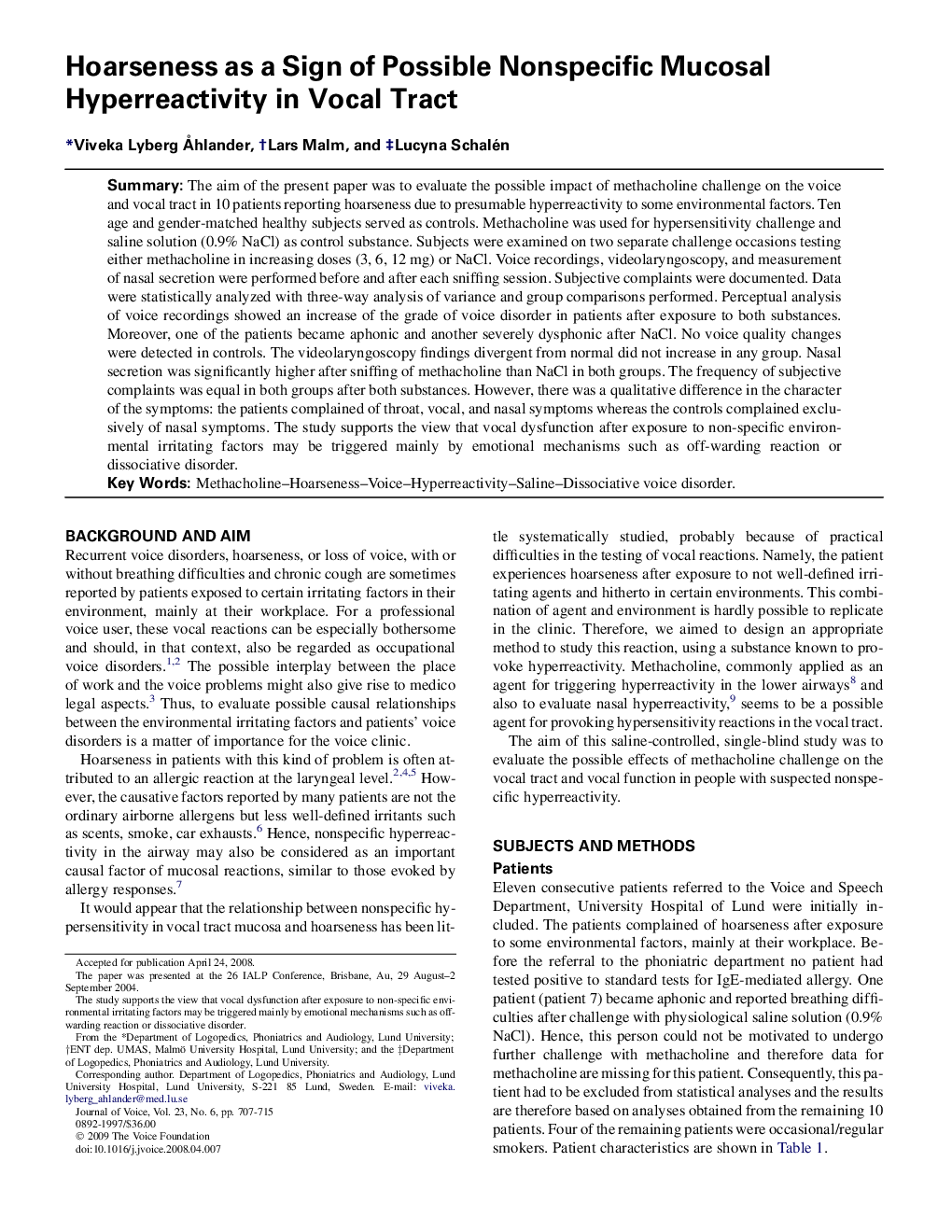| Article ID | Journal | Published Year | Pages | File Type |
|---|---|---|---|---|
| 1102749 | Journal of Voice | 2009 | 9 Pages |
Abstract
The aim of the present paper was to evaluate the possible impact of methacholine challenge on the voice and vocal tract in 10 patients reporting hoarseness due to presumable hyperreactivity to some environmental factors. Ten age and gender-matched healthy subjects served as controls. Methacholine was used for hypersensitivity challenge and saline solution (0.9% NaCl) as control substance. Subjects were examined on two separate challenge occasions testing either methacholine in increasing doses (3, 6, 12 mg) or NaCl. Voice recordings, videolaryngoscopy, and measurement of nasal secretion were performed before and after each sniffing session. Subjective complaints were documented. Data were statistically analyzed with three-way analysis of variance and group comparisons performed. Perceptual analysis of voice recordings showed an increase of the grade of voice disorder in patients after exposure to both substances. Moreover, one of the patients became aphonic and another severely dysphonic after NaCl. No voice quality changes were detected in controls. The videolaryngoscopy findings divergent from normal did not increase in any group. Nasal secretion was significantly higher after sniffing of methacholine than NaCl in both groups. The frequency of subjective complaints was equal in both groups after both substances. However, there was a qualitative difference in the character of the symptoms: the patients complained of throat, vocal, and nasal symptoms whereas the controls complained exclusively of nasal symptoms. The study supports the view that vocal dysfunction after exposure to non-specific environmental irritating factors may be triggered mainly by emotional mechanisms such as off-warding reaction or dissociative disorder.
Related Topics
Health Sciences
Medicine and Dentistry
Otorhinolaryngology and Facial Plastic Surgery
Authors
Viveka Lyberg Ã
hlander, Lars Malm, Lucyna Schalén,
